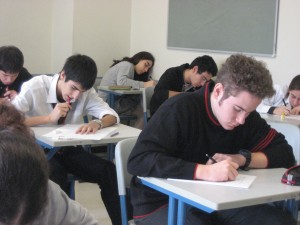
We posed three questions to the authors. Here’s what they said:
1. What led you to do this research?
Current policy discussions in higher education are often focused on graduation. But college is not just about getting a credential. It is also about learning. We know little about whether and what students learn in higher education.
2. What should everybody know about what you found?
College both perpetuates and amplifies inequality. We studied development of general collegiate skills – critical thinking, complex reasoning, and writing – over four years of college. Students from less-educated families entered college with lower levels of general collegiate skills, and that gap persisted over time. In contrast, African-American students not only entered college with lower levels of general collegiate skills than their white peers but gained less over time, amplifying inequality. Thus, even when persisting through four years of college, students from traditionally underrepresented groups are not leaving college with the same levels of skills. Researchers and policymakers need to look at more than completion rates and consider other, often less visible, forms of inequality.
3. What are you going to do next on this topic?
We are expanding our research to consider subject-specific skills. While general collegiate skills, such as critical thinking, complex reasoning, and writing, are important outcomes of higher education, they are not the only skills students are expected to develop in college. Understanding the development of subject-specific skills presents another important avenue of investigation.
Read the full article here:
Josipa Roksa and Richard Arum, “Inequality in skill development on college campuses,” Research in Social Stratification & Mobility.




Comments 2
Letta Page — March 6, 2015
Great idea for a feature! Keep 'em coming!
TSP’s Weekly Roundup: March 20, 2015 - Treat Them Better — March 20, 2015
[…] Education and Society debuts its new interview feature with three questions with Josipa Roksa. […]